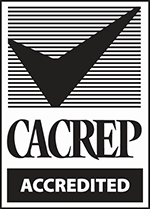Register for an Upcoming Information Session
Learn to support students of all ages in their educational, social-emotional, and college/career growth.
This concentration prepares students for school counseling positions in public or private elementary, middle, and secondary schools. Graduates qualify for Virginia Department of Education licensure in school counseling PK–12.
Learn more about our program:

- Graduates are prepared to become licensed school counselors for grades PK–12.
- Course work encourages students to incorporate multiculturalism, social justice, advocacy, leadership, and internationalism in their school counseling practice.
- Graduates are prepared for the National Clinical Mental Health Counselors Examination (req. for LPC-VA).
- Students focus on areas of interest in electives, including mindfulness, eating disorders, and creative counseling practices.
- This degree contains the majority required course work outlined by the Virginia Board of Counseling for Licensed Professional Counselor licensure.
- 60 credits, with part-time and full-time options available
- All courses held face-to-face at Mason’s Fairfax Campus
- 3 credits of practicum and 6 credits of internship (700 hours total)
- May and August program start dates
- public schools
- private schools
- alternative schools
George Mason University will verify completion of the Virginia Department of Education (VDOE) state-approved preparation program at the graduate or undergraduate level. Such verification does not guarantee the issuance of a Virginia Collegiate Professional, Postgraduate Professional, or Pupil Personnel license from the Commonwealth of Virginia. It is solely the student's responsibility to comply with all requirements for licensure by the Commonwealth. Under Virginia law, a social security number is required for licensure.
This program has been identified by George Mason University as one that may lead to a career requiring professional licensure/certification. Federal regulations require George Mason to disclose information as to whether this program meets/does not meet the educational requirements for licensure/certification in your state, or whether such a determination has not been made. Please consult our Licensure Disclosure Tool for the disclosure statement specific to your desired state/program combination.
Information regarding the accreditation of George Mason University can be found on the Provost's webpage at https://provost.gmu.edu/administration/academic-affairs/accreditation.
Core Requirements (40 Credits)
School Counseling Concentration Requirements (18 Credits)
Electives (2 Credits)
- Selected from EDCD courses or with permission of advisor
Fall Semester
(classes starting in August) |
Spring Semester
(classes starting in January) |
Summer Semester
(classes starting in May, June, or July) |
| January 15 |
Applications not accepted for this term |
Applications not accepted for this term |
For more information and to apply, visit the admissions website.
* Priority deadline ensures consideration for the intended semester as well as financial aid options for students. Programs will continue to review applications until at capacity. Some programs do not review applications past the priority deadline.
All application materials must be submitted through George Mason’s online graduate application. In addition to meeting general university admissions requirements, applicants will need to provide the requirements below.
To be considered for graduate studies, the following items are evaluated during the admission review process:
- Graduate application and fee
- Essay Prompt responses (see below)
- Current resume
- Two letters of recommendation: Applicants should follow the instructions included in the online application to submit the recommendation form directly to their recommender. Mason does not accept paper recommendations. Recommendations should be professional or academic in nature.
- Transcripts from all previous institutions attended in the U.S. Please refer to the Office of Graduate Admissions information page for specific requirements regarding uploading unofficial transcripts.
- Applicants with transcripts from outside of the U.S. could have additional requirements. Please refer to the How To Apply page for specific requirements about submitting international transcripts, evaluations, and English language proficiency.
Please submit responses to the following three questions in place of a personal goals statement. Please upload your responses in the online application. Responses are capped at 250 words each.
- Why do you want to become a counselor? Specifically, what do you hope to do when you complete your degree concentrating in either School Counseling or Clinical Mental Health Counseling?
- Our program’s mission focuses on multiculturalism, social justice, and advocacy. Read more about our program mission and objectives here. Reflect on the mission of our counseling program and share what stands out to you. How will our mission inform how will you will engage in learning and develop as a counselor?
- As part of your training to become a counselor, you will be asked to explore your own personal biases, identify personal strengths and growth areas, and develop your interpersonal skills. Describe an area of interpersonal or intra-personal growth for you and give an example of how it may limit your ability to be an effective counselor. (Note: please think more deeply than challenges like time management or study skills.)
- An earned baccalaureate and/or graduate degree from a regionally accredited institution of higher education, or international equivalent, verified from official transcripts. Expectation of an earned baccalaureate and/or graduate degree prior to the first day of classes for the term for which the student is applying will also meet this requirement. See the admissions policy here for information.
- A minimum 3.00 GPA on a 4.00 scale in baccalaureate study. The GPA requirement may be higher for some graduate programs. The university, at its discretion, may, in evaluating the meeting of this requirement, additionally consider the difficulty of the baccalaureate degree, relevant work experience, any/or other evidence of ability to succeed in graduate study.
- International students should reference Admission of International Students for additional requirements.
- 12 credits in behavioral sciences undergraduate coursework
- 500 hours of counseling-related experience. Can be work and/or volunteer-related experience.
- Admissions Interview
| TUITION CLASSIFICATION |
COST PER CREDIT |
| Virginia Resident |
$752.50
(includes MSF*) |
| Non-Virginia Resident |
$952.50
(includes MSF*; discounted from $1,641.50) |
| VA Resident and PK-12 VA Educator enrolled in a CEHD graduate program** |
$640.00
(includes MSF*) |
| CEHD Course Fee |
$25 - $84 |
| Total Cost for Virginia Residents per Credit |
$777.50 - $836.50 |
| Total Cost for Non-Virginia Residents per Credit |
$977.50 - $1036.50 |
| Total cost for VA Resident and PK-12 VA Educator enrolled in a CEHD graduate program** |
$665.00 - $724.00 |
Graduate New Student Fee
(non-refundable, one-time fee) |
$60 |
Please Note: Refer to the Students Accounts Office website for more information on tuition and fees. Internship courses will incur a higher course fee to fund on-site assistance involving intensive clinical training/supervision.
*Mandatory Student Fee (MSF): $163.50
**VA state residents who are eligible must apply for the 15% PreK-16 VA Educators Discount in order to take advantage of the lower tuition. Eligible students receive 15% off the total tuition and mandatory student fee.
For information on loans and scholarships, visit the Office of Student Financial Aid. For information regarding grants, tuition waivers, and other merit aid, please inquire with your graduate department. Also, many school districts offer tuition reimbursement options. Speak to your employer for more information.
Academic Advisor
Cathy Gabbay
Email: cgabbay@gmu.edu
Phone: 703-993-5691
Fairfax Campus: Thompson Hall, Suite 1200
Make an appointment
Links and Resources from the Office of Teacher Preparation:









